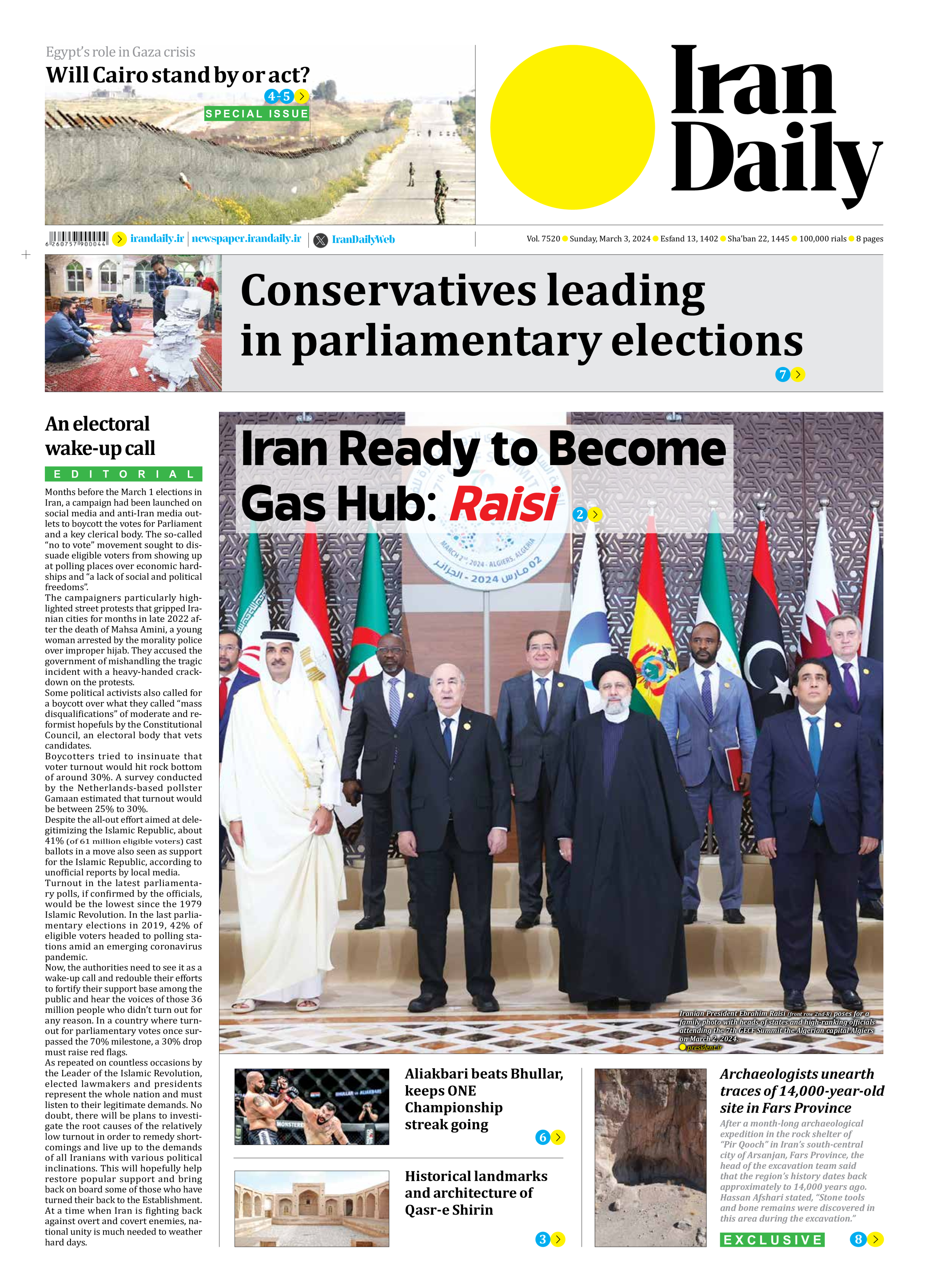
An electoral wake-up call
Months before the March 1 elections in Iran, a campaign had been launched on social media and anti-Iran media outlets to boycott the votes for Parliament and a key clerical body. The so-called “no to vote” movement sought to dissuade eligible voters from showing up at polling places over economic hardships and “a lack of social and political freedoms”.
The campaigners particularly highlighted street protests that gripped Iranian cities for months in late 2022 after the death of Mahsa Amini, a young woman arrested by the morality police over improper hijab. They accused the government of mishandling the tragic incident with a heavy-handed crackdown on the protests.
Some political activists also called for a boycott over what they called “mass disqualifications” of moderate and reformist hopefuls by the Constitutional Council, an electoral body that vets candidates.
Boycotters tried to insinuate that voter turnout would hit rock bottom of around 30%. A survey conducted by the Netherlands-based pollster Gamaan estimated that turnout would be between 25% to 30%.
Despite the all-out effort aimed at delegitimizing the Islamic Republic, about 41% (of 61 million eligible voters) cast ballots in a move also seen as support for the Islamic Republic, according to unofficial reports by local media.
Turnout in the latest parliamentary polls, if confirmed by the officials, would be the lowest since the 1979 Islamic Revolution. In the last parliamentary elections in 2019, 42% of eligible voters headed to polling stations amid an emerging coronavirus pandemic.
Now, the authorities need to see it as a wake-up call and redouble their efforts to fortify their support base among the public and hear the voices of those 36 million people who didn’t turn out for any reason. In a country where turnout for parliamentary votes once surpassed the 70% milestone, a 30% drop must raise red flags.
As repeated on countless occasions by the Leader of the Islamic Revolution, elected lawmakers and presidents represent the whole nation and must listen to their legitimate demands. No doubt, there will be plans to investigate the root causes of the relatively low turnout in order to remedy shortcomings and live up to the demands of all Iranians with various political inclinations. This will hopefully help restore popular support and bring back on board some of those who have turned their back to the Establishment.
At a time when Iran is fighting back against overt and covert enemies, national unity is much needed to weather hard days.







